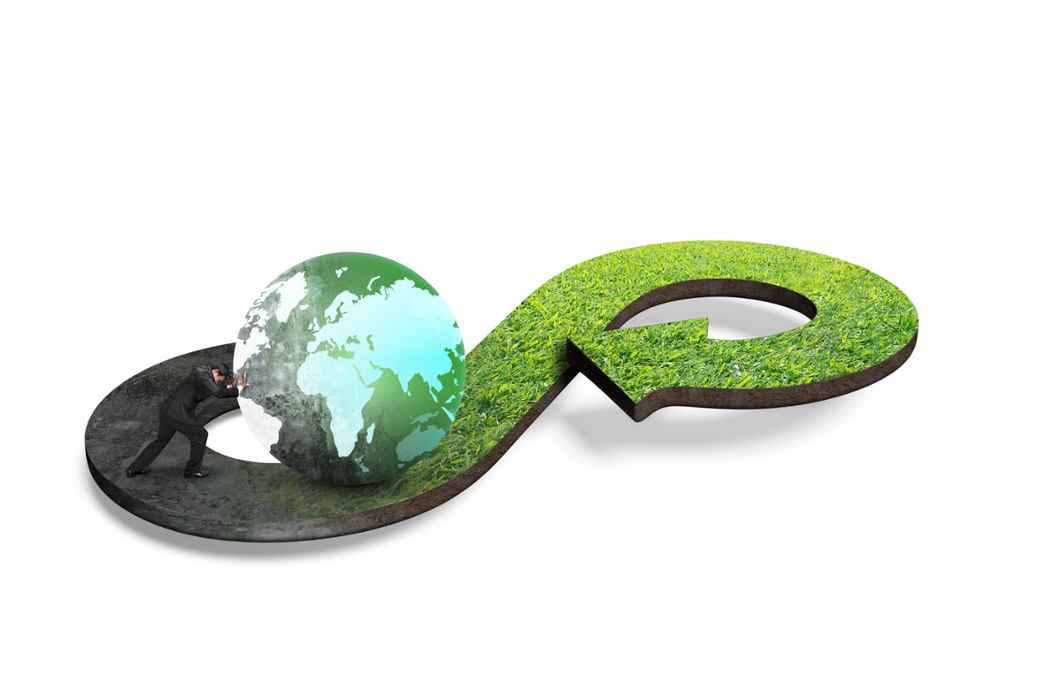It shows our commitment as an impact investor to address increasingly urgent global challenges and to spur systemic change in the global financial sector.
Enjoy reading our end-of-the-year list and stay connected for a year of new articles and publications in 2020!
The circular economy is often seen as a tool for making society sustainable. In the debate about this subject, the three aspects of sustainability are usually referred to: social, ecological and economic. But in actual fact, the debate about the circular economy only focuses on making material flows more sustainable. The social aspect of the circular economy is, at the most, only considered in terms of its potential impact on employment.
This is strange, argues Hans Stegeman in this column, because the principles of the circular economy can also be applied directly to human capital. Ultimately, without the human aspect, there cannot be a sustainable, circular system.
2. “Agriculture should work with nature instead of against it”
The way we currently produce and consume our food severely harms our ecosystems, our own health, and contributes to social inequality. Riella Hollander, Director Food and Agriculture, shares her insights on global agriculture: “We need a radical and systemic change in the way we produce, trade and consume our food. Agriculture should work with nature instead of against it.”
What change is needed, whose responsibility is this, and what should the financial sector do? Find out in the interview.
Nicaragua has made huge progress in improving its energy supply. The electrification rate of the country has increased from less than 50% in 2002 to around 95% in 2018. Compared to other countries in the region, however, this is still relatively low. Especially in remote, rural areas where sometimes less than 40% of the people have access to electricity. In this dual ambition, private initiatives play an important role.
One such initiative is the San Martin hydroelectric plant. Read the interview with Rodrigo Mantica, the CEO of Interamerican Hydroelectric Co.
4. “We have no time left to lose”
The world has witnessed increasingly positive action to combat climate change – from school children to central banks, governments and businesses. Yet, global emissions are still rising. “We’re in a state of emergency. We call for immediate action from all sectors of society, including the financial industry. We have no time left to lose.’
In its recent vision paper on energy and climate, Triodos Bank urges all stakeholders to take action now. Director Energy & Climate Itske Lulof explains what drove Triodos Bank to its position on the most critical issue for society.
5. Tech and touch – the digital transformation of KMF in Kazakhstan
With around 245,000 clients, KMF is the largest microfinance institution in Kazakhstan and has become one of the leaders in the microfinance sector in Central Asia. Karlygash Raikhanova, Deputy Chairman of KMF, talks about how KMF has embarked on the journey to digital transformation.
Read the full interview in which she also warns that easy access to credit is not always a good thing.
6. Impact bonds: stimulating change of just cheap refinancing?
The market for green and social bonds, also called impact bonds, has rapidly grown over the past few years, offering investors great impact opportunities. Yet, the danger of greenwashing looms, as they are increasingly used as a refinancing tool.
Read the strategy insights of portfolio manager Rosl Veltmeijer: “When used to finance new projects, green and social bonds provide an excellent opportunity to finance positive impact on people and planet.







